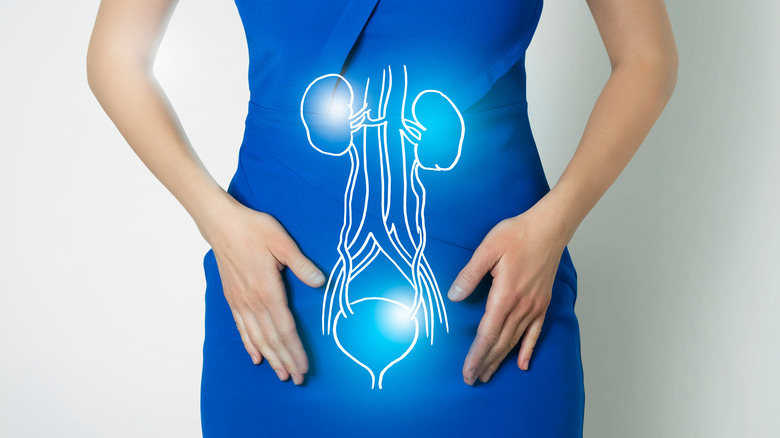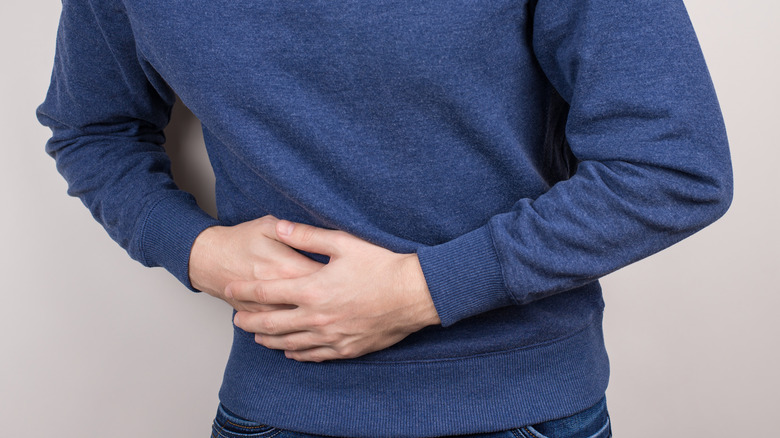How To Easily Relieve Bladder Pressure
Bladder pressure is an intense pain in the abdominal region with an increased urge to urinate more frequently throughout the day, according to MedicalNewsToday. As per WebMD, the bladder is an empty organ that expands in size when filled up with urine. As a result, it may lead to pain if the bladder is full for a long time. However, the walls become relaxed once it is emptied by expelling the urine through the urethra.
MedicalNewsToday explains that if the aching feeling disappears after you pee, there's nothing to worry about. However, if the pain is persistent, it may be a sign of some disease or complication, such as damage to the bladder wall, allergic reactions, or infections. If you experience bladder pressure often, you may also have pain during sexual intercourse (via Healthline). According to the Cleveland Clinic, pregnant women may also experience bladder pressure because of the baby's increasing size in the womb, which compresses the bladder against the uterus. However, this type of bladder pressure disappears after some time, typically after birth.
Tips for bladder pressure relief
According to Healthline, one of the most common go-to treatments for bladder pressure relief is taking over-the-counter pain medications such as ibuprofen or acetaminophen. As per reports by the National Institute of Diabetes and Digestive and Kidney Diseases (NIDDK), these pills can help relieve mild symptoms and pain in the bladder region. If an underlying inflammatory condition causes the pressure, you may need a dose of antihistamines or allergy meds such as hydroxyzine hydrochloride (via Bladder & Bowel Community).
In addition to taking meds, you can also try some physical therapies to ease bladder pressure, suggests Healthline. Several pelvic floor exercises help strengthen the pelvic muscles and are particularly effective for people experiencing bladder pressure because of an overactive bladder. Your doctor might also recommend nerve stimulation using electrical impulses to relieve the bladder pain and reduce the frequent need for peeing (via MedicalNewsToday). However, it is only viable for some, especially those with interstitial cystitis.


